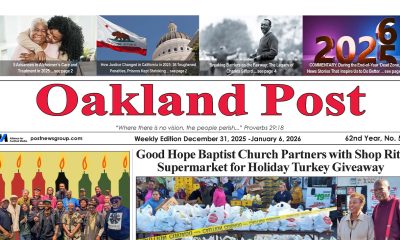Featured
Post Endorsements for City Council and Schools

The Oakland Post has endorsed candidates for five seats on the City Council, looking for leaders who are dynamic and visionary, have a track record of compassion and solidarity with neighborhoods in need, and are capable of working collaboratively with all parts of the city.
Endorsed candidates were: At-Large – Rebecca Kaplan; District 1 – incumbent Dan Kalb; District 3 – Carroll Fife; District 5 – incumbent Noel Gallo; and District 7 — Treva Reid (first choice) and Aaron Clay (second choice);
Oakland Post panelists in the recent interviews were Clarence Thomas, former secretary-treasurer of International Longshore and Warehouse Union Local 10 (retired); Cathy Leonard, founder of Oakland Neighborhoods for Equity and steering committee member of the Coalition for Police Accountability; Zappa Montague, teacher and long-time activist; Walter Riley, civil rights attorney; Dr. Kimberly Mayfield, dean of the School of Education at Holy Names University; and Kitty Kelly Epstein, education professor and host of a show on Radio Station KPFA 94.1 FM.
Panelists directed their questions to several of the deep concerns of local residents that are covered regularly in the pages of the Oakland Post. One issue was whether the candidates support real estate developer John Fisher’s proposal to buy the Oakland Coliseum property in East Oakland and take over Port of Oakland public property in West Oakland to build high-end luxury condominiums, a mall and a baseball stadium.
Candidates were asked if they have a comprehensive plan for housing Oakland residents including the homeless and the housing insecure.
Finally, panelists wanted to know the candidates’ comprehensive plan to resolve the city’s decades-long policing crisis: excessive overtime and cost overruns, and inability to comply with federal court racial justice requirements.
Here are the Post endorsements.
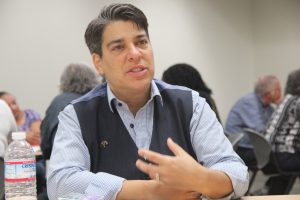
Rebecca Kaplan
Councilmember at Lage: Rebecca Kaplan, has supported many of the issues that are of particular importance to the African American community and people of color throughout this city.
Her leadership has been crucial on housing and tenant rights, police reform and an end to racial profiling, to improved air quality and toxics cleanup.
Her efforts have earned her the respect of many and the hostility of a few.
Kaplan is accessible and responsive to input. Her opponent has no experience in public office and sometimes seems confused by the issues.
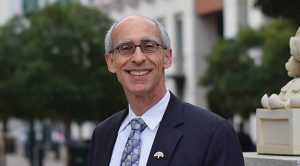
Dan Kalb
District 1: Dan Kalb has served on the City Council since 2013. He has worked hard to create a strong police commission to oversee the Oakland Police Department. He has also collaborated with fellow councilmembers to create policies for affordable housing and tenant protections.
People in his district have raised that they do not find Kalb accessible. We hope that is something he will change.
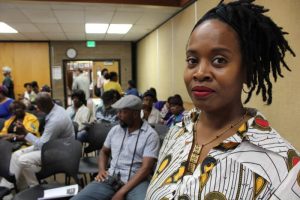
Carroll Fife
District 3: Carroll Fife is a candidate who represents real reform in city government and has programs and a track record of working for practical, systemic changes in housing, jobs, racial justice, health and public safety.
Though she has never held or run for public office before, she is well known for her work in the neighborhoods and at City Council by staff and elected officials for years of work on behalf of the community on many of the most important issues in Oakland.
She was a strong community advocate for the fight to create Oakland’s Department of Race and Equity. She has worked for jobs and training resources for unemployed and job-seeking West Oakland residents. She advocated for Moms for Housing, and she has fought foreclosures and evictions.
Fife has a plan for innovative strategies for housing local residents, to help those who are fighting to stay in Oakland and to bring home those who want to come back to the city.
She has a plan to rethink criminal justice: improve public safety while reducing police costs and overtime, utilizing mental health and other supportive resources.
District 3 is severely impacted by housing displacement and a tremendous increase in unhoused individuals. She has a plan to address this tragedy in West Oakland.
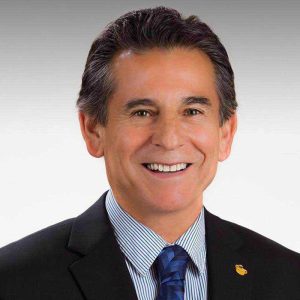
Noel Gallo
District 5: Noel Gallo
Noel Gallo has served on the council since 2013. He formerly served on the school board. For years, he has organized neighbors to hold trash and waste cleanups in District 5 every weekend.
He has raised critiques of the Howard Terminal stadium project and opposed selling the Oakland Coliseum property to a private developer. He has been a long-time advocate of utilizing public land for the public good.
Standing up to resistance, Gallo was one of the council members who worked tirelessly to help create a police commission to promote public oversight of the police department. He has a reputation for being very accessible to his constituents. While serving together on the Oakland School Board, Post publisher Cobb and Noel Gallo led the fight for funding for La Escuelita Elementary School.
Members of the Post endorsement panel appreciated a lot of ideas of District 5 challengers Richard Santos Raya and Zoe Lopez-Meraz and hope they will stay engaged in the public dialogue.

Treva Reid
District 7: Treva Reid (first choice endorsement) is a newcomer to elected office and appears to be very accessible and thoughtful.
A graduate of Hampton University, she has worked as a Senior Field Representative for then Assemblymember (now State Senator) Nancy Skinner, She advocated for housing policies, gun violence prevention, job training programs and legislation for incarcerated and formerly-incarcerated individuals.
She serves as an Associate for Assembly District 18 on the Alameda County Democratic Central Committee and is an Emerge California Alumna. She is also a ministry leader at Shiloh Church in Oakland. During the campaign, she has exhibited a grasp of the totality of issues affecting the city and which council members must confront. The Post publisher was impressed with her voluntarism and church community service activities.
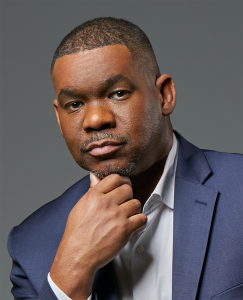
Aaron Clay
Aaron Clay (second choice endorsement) has a strong understanding of the issues and is very forthright about the need to protect public land for the public good.
He is a graduate of Morehouse College and Loyola University of Chicago Law School. His mother worked for over 30 years as a librarian in Oakland schools.
He serves on the board of the nonprofit Youth UpRising in East Oakland.
Activism
OP-ED: AB 1349 Puts Corporate Power Over Community
Since Ticketmaster and Live Nation merged in 2010, ticket prices have jumped more than 150 percent. Activities that once fit a family’s budget now take significant disposable income that most working families simply don’t have. The problem is compounded by a system that has tilted access toward the wealthy and white-collar workers. If you have a fancy credit card, you get “presale access,” and if you work in an office instead of a warehouse, you might be able to wait in an online queue to buy a ticket. Access now means privilege.

By Bishop Joseph Simmons, Senior Pastor, Greater St. Paul Baptist Church, Oakland
As a pastor, I believe in the power that a sense of community can have on improving people’s lives. Live events are one of the few places where people from different backgrounds and ages can share the same space and experience – where construction workers sit next to lawyers at a concert, and teenagers enjoy a basketball game with their grandparents. Yet, over the past decade, I’ve witnessed these experiences – the concerts, games, and cultural events where we gather – become increasingly unaffordable, and it is a shame.
These moments of connection matter as they form part of the fabric that holds communities together. But that fabric is fraying because of Ticketmaster/Live Nation’s unchecked control over access to live events. Unfortunately, AB 1349 would only further entrench their corporate power over our spaces.
Since Ticketmaster and Live Nation merged in 2010, ticket prices have jumped more than 150 percent. Activities that once fit a family’s budget now take significant disposable income that most working families simply don’t have. The problem is compounded by a system that has tilted access toward the wealthy and white-collar workers. If you have a fancy credit card, you get “presale access,” and if you work in an office instead of a warehouse, you might be able to wait in an online queue to buy a ticket. Access now means privilege.
Power over live events is concentrated in a single corporate entity, and this regime operates without transparency or accountability – much like a dictator. Ticketmaster controls 80 percent of first-sale tickets and nearly a third of resale tickets, but they still want more. More power, more control for Ticketmaster means higher prices and less access for consumers. It’s the agenda they are pushing nationally, with the help of former Trump political operatives, who are quietly trying to undo the antitrust lawsuit launched against Ticketmaster/Live Nation under President Biden’s DOJ.
That’s why I’m deeply concerned about AB 1349 in its current form. Rather than reining in Ticketmaster’s power, the bill risks strengthening it, aligning with Trump. AB 1349 gives Ticketmaster the ability to control a consumer’s ticket forever by granting Ticketmaster’s regime new powers in state law to prevent consumers from reselling or giving away their tickets. It also creates new pathways for Ticketmaster to discriminate and retaliate against consumers who choose to shop around for the best service and fees on resale platforms that aren’t yet controlled by Ticketmaster. These provisions are anti-consumer and anti-democratic.
California has an opportunity to stand with consumers, to demand transparency, and to restore genuine competition in this industry. But that requires legislation developed with input from the community and faith leaders, not proposals backed by the very company causing the harm.
Will our laws reflect fairness, inclusion, and accountability? Or will we let corporate interests tighten their grip on spaces that should belong to everyone? I, for one, support the former and encourage the California Legislature to reject AB 1349 outright or amend it to remove any provisions that expand Ticketmaster’s control. I also urge community members to contact their representatives and advocate for accessible, inclusive live events for all Californians. Let’s work together to ensure these gathering spaces remain open and welcoming to everyone, regardless of income or background.
Activism
Oakland Post: Week of December 31, 2025 – January 6, 2026
The printed Weekly Edition of the Oakland Post: Week of – December 31, 2025 – January 6, 2026

To enlarge your view of this issue, use the slider, magnifying glass icon or full page icon in the lower right corner of the browser window.
Activism
Big God Ministry Gives Away Toys in Marin City
Pastor Hall also gave a message of encouragement to the crowd, thanking Jesus for the “best year of their lives.” He asked each of the children what they wanted to be when they grow up.

By Godfrey Lee
Big God Ministries, pastored by David Hall, gave toys to the children in Marin City on Monday, Dec. 15, on the lawn near the corner of Drake Avenue and Donahue Street.
Pastor Hall also gave a message of encouragement to the crowd, thanking Jesus for the “best year of their lives.” He asked each of the children what they wanted to be when they grew up.
Around 75 parents and children were there to receive the presents, which consisted mainly of Gideon Bibles, Cat in the Hat pillows, Barbie dolls, Tonka trucks, and Lego building sets.
A half dozen volunteers from the Big God Ministry, including Donnie Roary, helped to set up the tables for the toy giveaway. The worship music was sung by Ruby Friedman, Keri Carpenter, and Jake Monaghan, who also played the accordion.
Big God Ministries meets on Sundays at 10 a.m. at the Mill Valley Community Center, 180 Camino Alto, Mill Valley, CA Their phone number is (415) 797-2567.
-

 Activism4 weeks ago
Activism4 weeks agoDesmond Gumbs — Visionary Founder, Mentor, and Builder of Opportunity
-

 Activism4 weeks ago
Activism4 weeks agoFamilies Across the U.S. Are Facing an ‘Affordability Crisis,’ Says United Way Bay Area
-

 Alameda County4 weeks ago
Alameda County4 weeks agoOakland Council Expands Citywide Security Cameras Despite Major Opposition
-

 Alameda County4 weeks ago
Alameda County4 weeks agoBling It On: Holiday Lights Brighten Dark Nights All Around the Bay
-

 Activism4 weeks ago
Activism4 weeks agoBlack Arts Movement Business District Named New Cultural District in California
-

 Activism4 weeks ago
Activism4 weeks agoLu Lu’s House is Not Just Toying Around with the Community
-

 Activism4 weeks ago
Activism4 weeks agoOakland Post: Week of December 17 – 23, 2025
-

 Black History3 weeks ago
Black History3 weeks agoAlfred Cralle: Inventor of the Ice Cream Scoop

